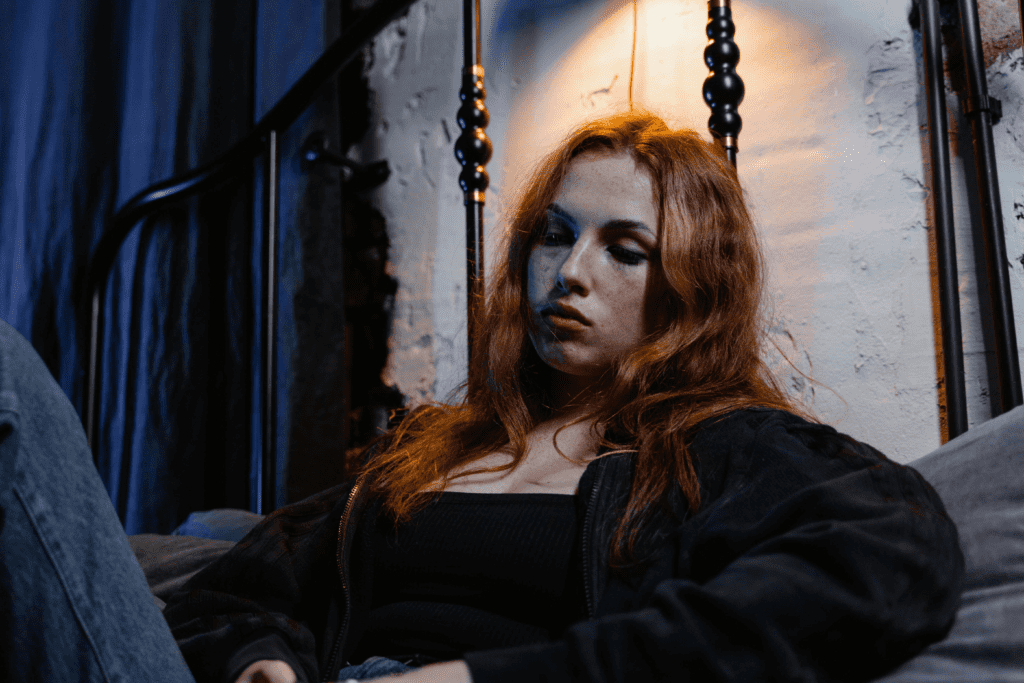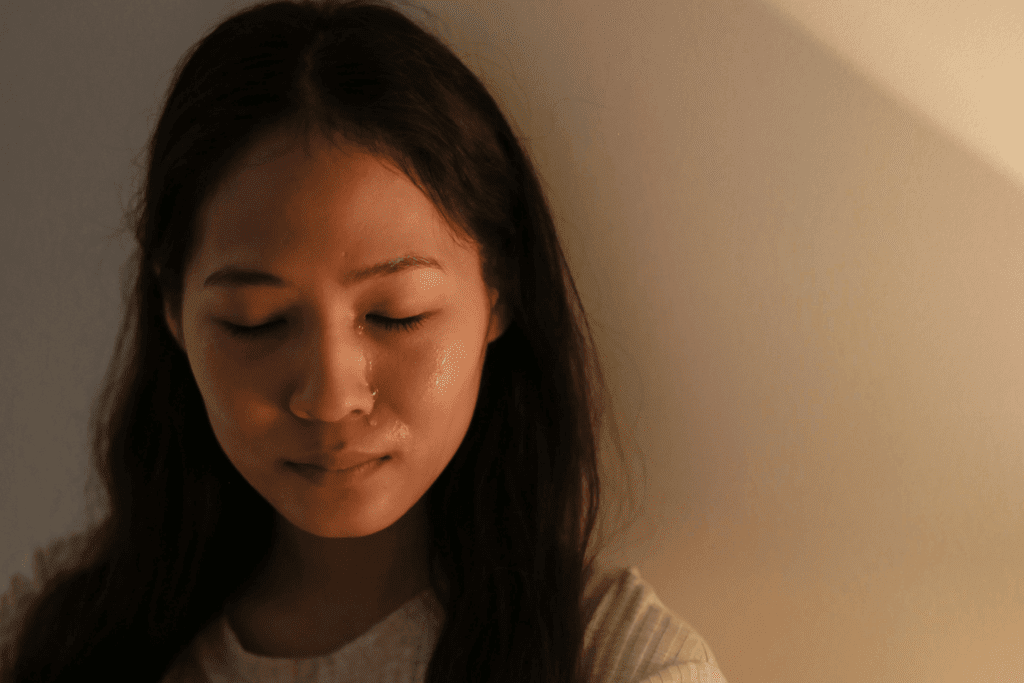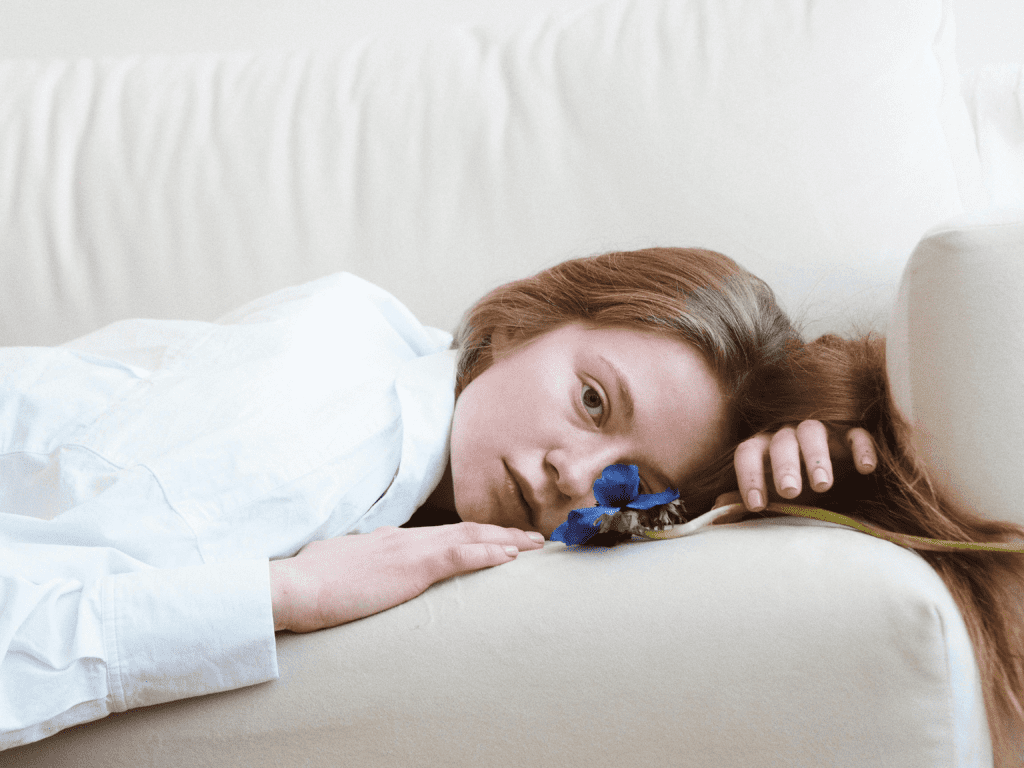Last updated on December 18th, 2024 at 03:18 am
- 1. The Rise of Sleeping Pill Usage
- 1.1 Societal Pressures and Stress
- 1.2 Increased Awareness of Sleep Disorders
- 1.3 Pharmaceutical Marketing
- 2. Understanding Sleeping Pills
- 2.1 Types of Sleeping Pills
- 2.2 Mechanism of Action
- 2.3 Short-Term vs. Long-Term Use
- 3. The Path to Addiction
- 3.1 Tolerance Development
- 3.2 Psychological Dependence
- 3.3 Rebound Insomnia
- 4. Signs and Symptoms of Sleeping Pill Addiction
- 4.1 Behavioral Changes
- 4.2 Physical Symptoms
- 4.3 Withdrawal Symptoms
- 5. Health Risks of Sleeping Pill Abuse
- 5.1 Cognitive Impairment
- 5.2 Increased Risk of Accidents
- 5.3 Respiratory Depression
- 6. The Impact on Sleep Quality
- 6.1 Altered Sleep Architecture
- 6.2 Daytime Functioning
- 7. Vulnerable Populations
- 7.1 Elderly Individuals
- 7.2 Individuals with Mental Health Disorders
- 8. The Role of Healthcare Providers
- 8.1 Prescribing Practices
- 8.2 Education and Alternatives
- 9. Treatment Approaches
- 9.1 Medical Detoxification
- 9.2 Cognitive Behavioral Therapy
- 9.3 Sleep Hygiene Education
- 10. Prevention Strategies
- 10.1 Public Awareness
- 10.2 Policy Changes
- 11. The Future of Sleep Medicine
- 11.1 New Medications
- 11.2 Technology-Based Solutions
- Health Consequences of Sleeping Pill Addiction
- Cardiovascular Risks Associated with Sleeping Pills
- Respiratory Complications and Depressed Breathing
- Impact on Mental Health and Emotional Wellbeing
- Behavioral Changes and Signs of Sleeping Pill Addiction
- Sleeping Pill Addiction and Physical Dependence
- Sleeping Pill Addiction in Vulnerable Populations
- Natural Remedies for Sleep Issues
- Role of Healthcare Providers in Managing Dependency
- Effective Sleep Hygiene Practices in Recovery
- Alternative Therapies for Overcoming Sleeping Pill Addiction
- Recovery Programs and Support Networks
- Sleeping Pill Addiction and the Risk of Fatal Overdose
- Sleeping Pill Addiction and Severe Withdrawal Symptoms
- Sleeping Pill Addiction and Complex Sleep Behaviors
- The Role of Treatment Centers in Sleeping Pill Addiction Recovery
- Addressing Long-term Effects of Sleeping Pill Addiction
- Medication-Assisted Treatment for Sleeping Pill Addiction
- Emotional Regulation and Mental Health Counseling
- The Risk of Misusing Over-the-Counter Sleep Aids
- Legal and Social Implications of Sleep Medication Abuse
- Impact of Sleep Aid Addiction on Physical Health
- Cognitive Behavioral Therapy for Sleep Medication Misuse
- Rebuilding Relationships After Sleep Aid Addiction
- Sleep Tracking and Sleep Quality Improvements
- Social Stigma and the Importance of Aftercare in Recovery
- Community Resources and Peer Support Networks
- Conclusion
- Frequently Asked Questions
- What Are The Warning Signs Of Sleeping Pill Addiction?
- How Does Long-Term Use Of Sleeping Pills Affect Sleep Quality?
- What Are The Risks Of Using Sleeping Pills With Alcohol?
- Can Prescription Sleeping Pills Cause Severe Withdrawal Symptoms?
- How Does Sleeping Pill Addiction Impact Mental Health?
- What Are The Dangers Of Misusing Over-The-Counter Sleep Aids?
- What Are The Common Side Effects Of Prescription Sleep Medications?
- How Can Sleeping Pill Addiction Affect Physical Health?
- What Is The Role Of Medical Detox In Treating Sleeping Pill Addiction?
- Can Cognitive Behavioral Therapy Help In Overcoming Sleeping Pill Dependency?
- What Are The Long-Term Effects Of Sleeping Pill Abuse On Mental Health?
- How Can Family Members Recognize Signs Of Sleeping Pill Addiction?
- Are There Natural Alternatives To Prescription Sleeping Pills?
- What Are The Dangers Of Sleeping Pill Overdose?
- How Can One Manage Withdrawal Symptoms From Sleeping Pills?
- What Role Does Emotional Health Play In Sleeping Pill Addiction?
- How Can Sleeping Pill Addiction Affect Everyday Life?
- Are There Holistic Approaches To Treating Sleeping Pill Addiction?
- What Are The Consequences Of Sleeping Pill Misuse During Pregnancy?
- How Can Behavioral Therapy Aid In Sleeping Pill Addiction Recovery?
Sleeping pills have become an increasingly common solution for those struggling with insomnia and other sleep disorders. While these medications can provide short-term relief, their widespread use has led to growing concerns about addiction and abuse.
This comprehensive exploration delves into the complex issues surrounding sleeping pill dependency, examining the causes, effects, and potential solutions to this pervasive problem.
Let’s discover the dangers of sleeping pill addiction and abuse, including health risks and dependency issues. Explore treatments to find recovery and support.
1. The Rise of Sleeping Pill Usage
The prevalence of sleeping pill prescriptions has skyrocketed in recent years, reflecting a society increasingly grappling with sleep-related issues. Several factors have contributed to this trend:
1.1 Societal Pressures and Stress
Modern life’s demands often lead to heightened stress levels and disrupted sleep patterns. Many individuals turn to sleeping pills as a quick fix for their sleep troubles, seeking relief from the pressures of work, family, and daily life.
1.2 Increased Awareness of Sleep Disorders
As medical understanding of sleep disorders has grown, so too has public awareness. This has led to more individuals seeking medical help for sleep-related issues, often resulting in sleeping pill prescriptions.
1.3 Pharmaceutical Marketing
Aggressive marketing campaigns by pharmaceutical companies have played a role in normalizing the use of sleeping pills, presenting them as a safe and effective solution for sleep problems.
2. Understanding Sleeping Pills
To grasp the complexities of sleeping pill addiction, it’s crucial to understand the nature of these medications and how they work.
2.1 Types of Sleeping Pills
Sleeping pills fall into several categories, including benzodiazepines, non-benzodiazepine hypnotics (z-drugs), and over-the-counter antihistamines. Each type works differently and carries its own set of risks and benefits.
2.2 Mechanism of Action
Most sleeping pills work by enhancing the effects of GABA, a neurotransmitter that promotes relaxation and sleep. This action can lead to both the desired sedative effects and potential side effects.
2.3 Short-Term vs. Long-Term Use
While sleeping pills are generally intended for short-term use, many individuals find themselves relying on them for extended periods, increasing the risk of dependency and addiction.


3. The Path to Addiction
Sleeping pill addiction often develops gradually, with users often unaware of their growing dependency. Several factors contribute to this progression:
3.1 Tolerance Development
Regular use of sleeping pills can lead to tolerance, where the body requires higher doses to achieve the same effect. This can prompt users to increase their dosage without medical supervision.
3.2 Psychological Dependence
Many users develop a psychological reliance on sleeping pills, believing they cannot sleep without them. This mental dependence can be as powerful as physical addiction.
3.3 Rebound Insomnia
When individuals attempt to stop using sleeping pills, they may experience worse insomnia than before, leading to a cycle of continued use.
4. Signs and Symptoms of Sleeping Pill Addiction
Recognizing the signs of sleeping pill addiction is crucial for early intervention. Common indicators include:
4.1 Behavioral Changes
Individuals may exhibit secretive behavior, doctor shopping to obtain multiple prescriptions, or using the medication for non-sleep-related purposes.
4.2 Physical Symptoms
Chronic drowsiness, impaired coordination, and memory problems can be signs of ongoing sleeping pill abuse.
4.3 Withdrawal Symptoms
When attempting to stop or reduce use, individuals may experience anxiety, tremors, and severe rebound insomnia.


5. Health Risks of Sleeping Pill Abuse
Long-term abuse of sleeping pills can lead to numerous health complications:
5.1 Cognitive Impairment
Prolonged use can affect memory, attention, and decision-making abilities.
5.2 Increased Risk of Accidents
The sedative effects of sleeping pills can persist into the following day, increasing the risk of accidents, especially while driving.
5.3 Respiratory Depression
In high doses or when combined with other substances, sleeping pills can dangerously slow breathing.
6. The Impact on Sleep Quality
While sleeping pills may induce sleep, they often do not provide the same quality of rest as natural sleep:
6.1 Altered Sleep Architecture
Sleeping pills can disrupt normal sleep cycles, potentially reducing the amount of restorative deep sleep.
6.2 Daytime Functioning
Many users report feeling groggy and less alert during the day, even after a full night’s sleep.
7. Vulnerable Populations
Certain groups are at higher risk for sleeping pill addiction:
7.1 Elderly Individuals
Older adults may be more susceptible to the effects of sleeping pills and at higher risk for falls and cognitive impairment.
7.2 Individuals with Mental Health Disorders
Those with anxiety, depression, or other mental health conditions may be more likely to develop dependence on sleeping pills.


8. The Role of Healthcare Providers
Medical professionals play a crucial role in both the prevention and treatment of sleeping pill addiction:
8.1 Prescribing Practices
Responsible prescribing, including clear guidelines for use and regular follow-ups, can help prevent addiction.
8.2 Education and Alternatives
Healthcare providers should educate patients about the risks of sleeping pills and offer alternative treatments for insomnia.
9. Treatment Approaches
Addressing sleeping pill addiction requires a comprehensive approach:
9.1 Medical Detoxification
Supervised withdrawal can help manage potentially dangerous symptoms and reduce the risk of relapse.
9.2 Cognitive Behavioral Therapy
CBT can help individuals address underlying sleep issues and develop healthier sleep habits.
9.3 Sleep Hygiene Education
Learning and implementing good sleep practices can reduce reliance on medication.


10. Prevention Strategies
Preventing sleeping pill addiction involves both individual and societal efforts:
10.1 Public Awareness
Educating the public about the risks of sleeping pill abuse and the importance of healthy sleep habits is crucial.
10.2 Policy Changes
Stricter regulations on prescribing practices and pharmaceutical marketing can help reduce unnecessary use.
11. The Future of Sleep Medicine
As concerns about sleeping pill addiction grow, the field of sleep medicine is evolving:
11.1 New Medications
Researchers are working on developing sleep aids with lower addiction potential and fewer side effects.
11.2 Technology-Based Solutions
Innovations in sleep tracking and non-pharmacological interventions offer promising alternatives to traditional sleeping pills.
Health Consequences of Sleeping Pill Addiction
The prolonged use of prescription sleeping pills can lead to severe addiction and a range of health issues. Common side effects, including daytime sleepiness and a lack of coordination, increase the risk of dependence, particularly when these medications are used beyond their intended period of time.
Sleeping pill addiction has also been linked to mental health issues such as depression and anxiety disorders. This connection often complicates the recovery process and requires comprehensive treatment.
Cardiovascular Risks Associated with Sleeping Pills
Prescription sleep medications can have adverse effects on cardiovascular health. Long-term use may contribute to elevated blood pressure and an irregular heartbeat, increasing the risk of dangerous consequences for individuals with pre-existing heart conditions.
People with heart disease are particularly vulnerable to severe side effects, such as chest pain and irregular heart rhythms. These issues may lead to emergency medical interventions, highlighting the importance of cautious use.
Respiratory Complications and Depressed Breathing
Sleeping pills, especially those classified as CNS-depressant drugs, can lead to depressed breathing. This dangerous behavior is often exacerbated when individuals mix sleeping aids with other substances, such as alcohol or opioids.
These dangerous combinations can result in fatal overdose scenarios. This highlights the need for careful monitoring and professional oversight of pill usage.


Impact on Mental Health and Emotional Wellbeing
Dependence on sleeping pills can negatively affect both physical health and mental well-being. Prescription sleep aids have been linked to emotional distress, severe withdrawal symptoms, and increased drug cravings, making recovery particularly challenging.
In some cases, addiction to sleep aids can exacerbate mental health disorders like anxiety and depression. This adds to the complexities of long-term treatment and necessitates comprehensive care.
Behavioral Changes and Signs of Sleeping Pill Addiction
Sleeping pill dependence symptoms can manifest as behavioral changes, such as doctor shopping or excessive stress in managing prescriptions. Signs of addiction also include increased dosage levels beyond what is medically recommended, as well as cravings for sleep medication during everyday life.
These classic signs often indicate the need for intervention through an addiction treatment center or specialized pill rehabs. Early recognition is crucial for effective treatment.
Sleeping Pill Addiction and Physical Dependence
Over time, users of prescription drugs often develop physical dependence. This condition is characterized by the body’s adaptation to the active ingredient in sleep medications, requiring larger doses to achieve the same effect.
Such a cycle sleepless pattern perpetuates severe addiction, with users experiencing harmful effects such as sleep disturbances upon attempting to reduce their dosage. Addressing these symptoms requires a carefully structured treatment plan.
Sleeping Pill Addiction in Vulnerable Populations
Certain groups, like elderly individuals and those dealing with chronic pain, are at higher risk of developing a dependency on prescription sleeping pills. For these populations, the risk of adverse effects—such as falls due to lack of coordination or complex sleep behaviors—is particularly pronounced.
Medical detox in a supervised environment may be necessary to mitigate dangerous side effects. Vulnerable groups require close monitoring and tailored interventions.


Natural Remedies for Sleep Issues
For those struggling with long-term insomnia, natural sleep aids can serve as non-addictive alternatives. Practices like regular exercise, maintaining a stable sleep-wake cycle, and using herbal supplements such as Melatonin for Sleep have shown positive results.
These strategies promote better sleep quality without the harmful side effects of prescription drugs. They also help improve quality of life and minimize reliance on pharmaceutical interventions.
Role of Healthcare Providers in Managing Dependency
Health care professionals are crucial in identifying the signs of sleeping pill abuse and guiding patients towards healthier alternatives. Cognitive-behavioral therapy for insomnia and individual therapy sessions can help tackle the underlying causes of addiction.
When addiction is already established, a structured detox process or a medical detox program may be necessary. These methods support individuals in achieving long-term recovery.
Effective Sleep Hygiene Practices in Recovery
Adopting healthy sleep habits is essential for those overcoming sleeping pill addiction. Techniques such as reducing electronic devices before bed, establishing a bedtime routine, and creating a comfortable sleep environment are key.
These sleep hygiene practices can significantly enhance recovery efforts. They help to break the vicious cycle of sleep aid dependency and encourage restorative sleep.
Alternative Therapies for Overcoming Sleeping Pill Addiction
Alternative therapies like acupuncture, yoga practices, and mindfulness techniques are increasingly being utilized as part of a holistic approach to sleeping pill addiction treatment. Such therapies address the physical aspects of withdrawal while also focusing on emotional regulation.
Reducing the levels of stress that often trigger reliance on sleep aids is crucial in recovery. Engaging in activities like music therapy or journaling practices can also aid in managing emotional distress during recovery.
Recovery Programs and Support Networks
Sleeping pill addiction recovery programs, including inpatient rehab and outpatient support, offer structured environments for managing cravings for sleep medication. Rehab centers often incorporate a combination of medication-assisted treatment and cognitive therapies.
These programs are designed to support individuals through the severe withdrawal symptoms associated with sleep aid cessation. Peer support networks also provide emotional and social reinforcement during challenging phases of withdrawal.
Sleeping Pill Addiction and the Risk of Fatal Overdose
Mixing sleeping pills with other counter medications or street drugs is a dangerous behavior that significantly raises the risk of sleeping pill overdose. In particular, combining prescription sleep aids with alcohol or opioids can be a deadly combination.
Recognizing the signs of addiction, such as dangerous side effects or intense cravings, can help prevent a potential fatal overdose. Timely medical intervention and emergency care are critical in these scenarios.


Sleeping Pill Addiction and Severe Withdrawal Symptoms
Withdrawal symptoms of sleep medication can be physically and emotionally taxing. Severe withdrawal symptoms such as anxiety, abdominal pains, and intense cravings are common during the detox process.
A supervised medical detox program can help mitigate these symptoms. Providing necessary medical care is essential for individuals struggling with withdrawal.
Sleeping Pill Addiction and Complex Sleep Behaviors
Complex sleep behaviors, such as sleepwalking and sleep-driving, have been reported as side effects of prescription sleeping pills. These behaviors are often dangerous and can have negative consequences for the individual and others.
People ages more vulnerable to such risks should consider alternative treatments, like cognitive therapies or natural sleep aids. These measures can reduce the likelihood of such dangerous side effects.
The Role of Treatment Centers in Sleeping Pill Addiction Recovery
Inpatient treatment centers play a crucial role in providing the appropriate level of care for severe addiction cases. These centers can offer a safe environment for managing pill withdrawal symptoms and reducing the risk of fatal overdose.
Specialized treatment programs also focus on physical health and emotional health. Ensuring a comprehensive approach to recovery is essential for long-term success.
Addressing Long-term Effects of Sleeping Pill Addiction
The long-term effects of sleeping pill addiction can severely impact quality of life. Chronic use of sleep medications often leads to sleep disturbances and poor sleep quality.
Addressing these issues through holistic approaches, such as relaxation techniques and sleep disorder management, can help in achieving better outcomes. Long-term support is crucial in restoring overall well-being.
Medication-Assisted Treatment for Sleeping Pill Addiction
Medication-assisted treatment may be beneficial for individuals experiencing intense cravings or struggling with dosage levels. These treatments, combined with behavioral therapy techniques, offer a structured approach to overcoming dependency.
The integration of pharmacological interventions in treatment programs can support sustained recovery. Medication-assisted approaches can make the detox process more manageable.
Emotional Regulation and Mental Health Counseling
Working with a mental health counselor is crucial in managing the psychological addiction aspect of sleeping pill abuse. Individual therapy and emotional regulation techniques are effective in addressing underlying issues contributing to addiction.
Mental Health Services Administration provides resources for accessing such counseling services. This support can be essential in achieving emotional stability during recovery.


The Risk of Misusing Over-the-Counter Sleep Aids
Over-the-counter sleep aid addiction is also a growing concern. These counter sleep aids, although perceived as safer, can lead to dependency if misused over a prolonged period of time.
Recognizing the harmful effects and understanding the importance of proper dosage is essential to avoid negative effects and addiction. Misuse of these aids can escalate to more severe health issues.
Legal and Social Implications of Sleep Medication Abuse
Misusing sleep medications can have legal implications, including fees from purchases of controlled substances without a prescription. These legal issues can further complicate the individual’s recovery journey.
Social stigma surrounding sleeping pill abuse can also deter individuals from seeking help. Addressing these barriers through community resources and peer support networks can enhance recovery outcomes.
Impact of Sleep Aid Addiction on Physical Health
Sleep aid misuse significantly impacts physical health, including heart rate irregularities and blood pressure issues. Common symptoms such as difficulty breathing and chest pain can escalate without proper medical care.
These symptoms underline the need for a comprehensive approach to both medical and psychological health in recovery. Managing these health impacts requires coordinated care.
Cognitive Behavioral Therapy for Sleep Medication Misuse
Cognitive Behavioral Therapy (CBT) is an effective treatment option for those struggling with insomnia and sleep aid dependency. It helps individuals understand and change harmful behaviors related to sleep medication misuse.
CBT is also useful in establishing healthy sleep routines that support long-term recovery from addiction. This approach helps reduce dependence on sleep aids.
Rebuilding Relationships After Sleep Aid Addiction
Sleeping pill addiction can strain personal relationships, often causing emotional distress and a lack of trust. Rebuilding relationships through transparent communication and ongoing support is an essential aspect of recovery.
Peer counseling and family therapy are effective strategies for fostering healing and social reintegration. These approaches help restore connections and build a support network.
Sleep Tracking and Sleep Quality Improvements
Utilizing sleep tracking tools can aid in monitoring sleep quality improvements during recovery. These tools help individuals identify sleep disturbances and adjust their sleep hygiene practices accordingly.
Focusing on restful night routines can significantly enhance the quality of sleep post-addiction. Tracking progress can motivate ongoing improvements.
Social Stigma and the Importance of Aftercare in Recovery
Social stigma often prevents individuals from accessing necessary care for sleep aid addiction. Engaging in aftercare programs is critical for sustaining long-term recovery and preventing relapse.
Support groups and ongoing therapy help individuals navigate everyday life without returning to harmful sleep aid usage. Continued support is vital for long-term success.
Community Resources and Peer Support Networks
Community resources such as addiction support groups and local rehab centers are instrumental in helping individuals recover. Peer mentoring provides emotional support, while community-driven initiatives foster a sense of belonging.
Access to these resources can enhance the effectiveness of the recovery process, leading to sustainable outcomes. Community involvement is key in promoting resilience and preventing relapse.


Conclusion
Sleeping pill addiction and abuse represent a complex challenge at the intersection of medical necessity and potential harm. While these medications can provide much-needed relief for those struggling with sleep disorders, their potential for addiction underscores the need for cautious use and comprehensive treatment approaches.
By raising awareness, implementing responsible prescribing practices, and exploring alternative treatments, we can work towards addressing sleep issues while minimizing the risks of addiction. As research continues and our understanding of sleep medicine advances, the hope is that safer and more effective solutions will emerge, offering relief without the specter of dependency.
From Embrace Inner Chaos to your inbox
Transform your Chaos into authentic personal growth – sign up for our free weekly newsletter! Stay informed on the latest research advancements covering:
Narcissistic Personality Disorder (NPD)
Frequently Asked Questions
What Are The Warning Signs Of Sleeping Pill Addiction?
The warning signs of sleeping pill addiction can be subtle but include increased dosage needs, cravings for the medication, and attempts to obtain prescriptions from multiple doctors. Physical symptoms might involve lack of coordination or drowsiness throughout the day.
Psychological symptoms, such as emotional distress or irritability when not using the pills, are also common indicators. According to the National Institute on Drug Abuse, individuals may also experience difficulty focusing, mood swings, and strained relationships as a result of their dependence.
How Does Long-Term Use Of Sleeping Pills Affect Sleep Quality?
Long-term use of sleeping pills can negatively impact sleep quality, causing individuals to experience fragmented or dreamless sleep. Although sleeping pills may provide initial relief for insomnia, over time, they can disrupt the natural sleep-wake cycle and lead to dependency.
Experts from Harvard Health Online note that this dependency can result in the body requiring higher doses to achieve the same effect. Eventually, this may worsen sleep disturbances and leave users feeling fatigued during the day.
What Are The Risks Of Using Sleeping Pills With Alcohol?
Combining sleeping pills with alcohol can create a deadly combination, as both substances are central nervous system depressants. This mixture can severely impact brain activity, leading to extreme drowsiness, depressed breathing, and even a fatal overdose.
The Centers for Disease Control and Prevention warns that using these substances together can significantly heighten the risk of impaired judgment and dangerous behavior. Severe respiratory issues may also occur, potentially requiring emergency medical intervention.
Can Prescription Sleeping Pills Cause Severe Withdrawal Symptoms?
Yes, prescription sleeping pills can cause severe withdrawal symptoms when usage stops, especially after prolonged use. Symptoms might include intense cravings, insomnia, anxiety, and even physical effects like stomach pain or difficulty breathing.
According to San Antonio Recovery Center, withdrawal from certain prescription sleeping pills can also result in life-threatening complications such as seizures. This underscores the importance of a supervised medical detox when discontinuing use.
How Does Sleeping Pill Addiction Impact Mental Health?
Sleeping pill addiction can significantly impact mental health, contributing to anxiety disorders, depression, and emotional instability. Prolonged use may alter the brain’s chemical balance, making it difficult for individuals to cope without the medication.
The Substance Abuse and Mental Health Services Administration emphasizes that the anxiety linked to withdrawal, combined with the effects of disrupted sleep patterns, can worsen existing mental health conditions. It may even trigger new mental health issues.


What Are The Dangers Of Misusing Over-The-Counter Sleep Aids?
Misusing over-the-counter sleep aids carries numerous risks, including physical dependence, poor sleep quality, and potential damage to the central nervous system. Regular misuse can lead to complications like daytime sleepiness, impaired motor skills, and lack of coordination.
The University for Health Sciences states that these consequences can severely impact everyday life, making daily tasks more difficult and dangerous. This is particularly true for older adults.
What Are The Common Side Effects Of Prescription Sleep Medications?
Common side effects of prescription sleep medications include dizziness, daytime drowsiness, and reduced reaction times. Long-term use can also cause more severe issues such as irregular heartbeat or depressed breathing.
As per the FDA, some users may experience memory problems and difficulty concentrating. This can lead to adverse effects on their quality of life, emphasizing the need for healthcare professionals to manage these side effects properly.
How Can Sleeping Pill Addiction Affect Physical Health?
Sleeping pill addiction can have a significant negative effect on physical health, increasing the risk of heart rate irregularities, blood pressure changes, and even digestive issues like abdominal pain. According to Granite Recovery Center, prolonged use may also lead to severe withdrawal symptoms that can cause physical distress.
This includes muscle pain, nausea, and chest discomfort, which impact overall physical wellbeing. Individuals may struggle with maintaining their health and managing these symptoms effectively.
What Is The Role Of Medical Detox In Treating Sleeping Pill Addiction?
Medical detox plays a crucial role in safely treating sleeping pill addiction by helping individuals gradually reduce their dependence under medical supervision. It aims to manage withdrawal symptoms, reduce health risks, and offer emotional support.
The American Addiction Centers mentions that medical detox is often the first step in a comprehensive treatment plan. It provides the foundation for long-term recovery and prevents dangerous consequences such as seizures.
Can Cognitive Behavioral Therapy Help In Overcoming Sleeping Pill Dependency?
Cognitive Behavioral Therapy (CBT) is an effective treatment for overcoming sleeping pill dependency by addressing the underlying issues that lead to misuse. It focuses on changing negative thought patterns and behaviors associated with sleep and stress.
According to Mayo Clinic, CBT helps individuals develop healthier coping mechanisms and establish proper sleep hygiene practices. It also helps regain control over their circadian rhythm, ultimately reducing dependency on sleeping aids.
What Are The Long-Term Effects Of Sleeping Pill Abuse On Mental Health?
The long-term effects of sleeping pill abuse on mental health can include increased anxiety, severe depression, and cognitive impairment. Prolonged use can alter the brain’s natural chemical balance, leading to lasting emotional distress.
The National Institute of Mental Health warns that users may struggle with decision-making and experience mood swings. Difficulties in maintaining relationships due to these mental health issues can significantly lower quality of life.
How Can Family Members Recognize Signs Of Sleeping Pill Addiction?
Family members can recognize signs of sleeping pill addiction by observing behavioral changes such as increased secrecy, mood swings, and avoidance of responsibilities. Physical signs may include daytime drowsiness, slurred speech, or lack of coordination.
The Hazelden Betty Ford Foundation advises that sudden requests for prescription refills or finding empty pill bottles can also indicate a growing dependence. These signs highlight the need for intervention and support.
Are There Natural Alternatives To Prescription Sleeping Pills?
Yes, there are natural alternatives to prescription sleeping pills, including melatonin supplements, relaxation techniques, and herbal teas such as chamomile. These options can promote better sleep quality without the risk of addiction.
According to Johns Hopkins Medicine, incorporating lifestyle changes like regular exercise and establishing a consistent sleep routine can also help. Limiting exposure to electronic devices can improve sleep patterns naturally, making these options safer for individuals.
What Are The Dangers Of Sleeping Pill Overdose?
Sleeping pill overdose can result in serious health consequences, including respiratory depression, unconsciousness, and even death. Overdoses often occur when individuals take larger doses than prescribed or mix pills with alcohol or other substances.
According to the World Health Organization, symptoms can include difficulty breathing and extreme confusion. Unresponsiveness may also occur, and overdosing on sleeping pills is a medical emergency that can lead to fatal consequences if not promptly addressed.
How Can One Manage Withdrawal Symptoms From Sleeping Pills?
Managing withdrawal symptoms from sleeping pills often involves medical supervision, tapering of dosage levels, and supportive therapies. Symptoms like intense cravings, sleepless nights, and anxiety can be challenging without professional help.
The Cleveland Clinic suggests that individuals undergoing withdrawal benefit from behavioral therapies and relaxation techniques. Support groups can also ensure a smoother transition away from dependence while addressing both physical and mental health concerns.
What Role Does Emotional Health Play In Sleeping Pill Addiction?
Emotional health plays a significant role in sleeping pill addiction, as individuals often misuse sleep aids to cope with stress, anxiety, or depression. Poor emotional health can lead to increased reliance on these medications, creating a vicious cycle of dependency.
The American Psychological Association points out that addressing emotional well-being through therapy, lifestyle changes, and stress management can be crucial. These steps help in reducing reliance on sleep medications and achieving a more stable mental state.


How Can Sleeping Pill Addiction Affect Everyday Life?
Sleeping pill addiction can severely impact everyday life, affecting work performance, social relationships, and overall quality of life. Daytime drowsiness, lack of concentration, and mood swings can make it difficult for individuals to maintain productivity.
According to WebMD, sleep medication misuse can also lead to absenteeism from work and withdrawal from social interactions. A decline in physical health is also common, ultimately hindering personal and professional growth.
Are There Holistic Approaches To Treating Sleeping Pill Addiction?
Holistic approaches to treating sleeping pill addiction include practices such as yoga, meditation, acupuncture, and dietary adjustments. These methods aim to reduce stress, improve sleep quality, and promote physical and emotional health without the use of medication.
According to Canyon Ranch, incorporating mindfulness techniques and relaxation exercises can help individuals manage withdrawal symptoms. Building healthier sleep patterns is another key benefit of these holistic practices, offering a complementary solution to traditional treatments.
What Are The Consequences Of Sleeping Pill Misuse During Pregnancy?
Misusing sleeping pills during pregnancy can lead to serious health risks for both the mother and the developing fetus, including respiratory issues, low birth weight, and potential developmental problems. According to March of Dimes, pregnant women who misuse sleep aids may also face increased risks of premature birth.
Withdrawal symptoms in newborns are another possible consequence, highlighting the need for careful management of sleep medications during pregnancy. Expectant mothers must consult healthcare professionals before using any sleep-related medications to avoid these dangerous consequences.
How Can Behavioral Therapy Aid In Sleeping Pill Addiction Recovery?
Behavioral therapy can be an essential tool in sleeping pill addiction recovery by addressing the root causes of addiction and teaching healthier coping mechanisms. It involves identifying triggers, challenging negative thought patterns, and replacing them with positive behaviors.
The National Alliance on Mental Illness states that therapy helps individuals develop emotional resilience and manage stress effectively. Adopting better sleep hygiene practices can also ultimately reduce dependency on sleeping medications and foster long-term recovery.



